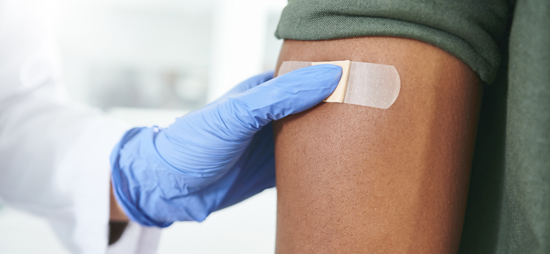
Last updated: Nov. 30, 2022
By now, you’ve probably heard the buzz about COVID-19 booster vaccines. So how can you know if getting a booster is right for you?
The University Health Center answers students’ most common questions about booster shots so that you can make an informed decision:
Why do people need a booster?
Studies show that after getting vaccinated against COVID-19, protection against the virus may decrease over time and be less able to protect against the Delta variant.
Who is eligible?
As the Centers for Disease Control and Prevention announced on Friday, Nov. 19, people age 18 years and older who received Pfizer-BioNTech, Moderna COVID-19 or Johnson & Johnson vaccines may now get a booster.
If you received the Pfizer or Moderna vaccines, you may get a booster after at least six months from when you completed your primary COVID-19 vaccination series. You should get a booster at least two months after your shot if you received the Johnson & Johnson
What does it cost?
The booster doses are free of charge to anyone who meets the eligibility criteria.
Where can I get my booster?
At this time, the University Health Center does not offer COVID-19 booster doses.
You can find off-campus locations that offer the booster by searching vaccines.gov, texting your ZIP code to 438829 or calling 1-800-232-0233.
Do I have to get the same vaccine as my original type?
You may choose which vaccine you receive as a booster dose. Some people may have a preference for the vaccine type they originally received. Others may prefer to get a different booster. The Centers for Disease Control and Prevention (CDC) allows this type of mix and match dosing for booster shots.
Does this change who is considered fully vaccinated?
The definition of fully vaccinated has not changed. If you have completed your two-dose Pfizer or Moderna series or the one-dose Johnson & Johnson vaccine, you are still considered fully vaccinated.
Learn more about COVID-19 booster shots by visiting the CDC website.